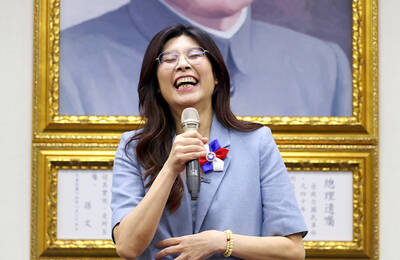British troops will start leaving Iraq next May under detailed plans, drawn up by London and Washington, to be presented next month to the Iraqi parliament, the Observer newspaper reported yesterday.
Quoting senior military sources, it said the blueprint "will lay out a point-by-point `road map' for military disengagement by multinational forces," with the first steps possibly going into effect soon after the December polls.
It said Britain has already "privately" informed Japan of its plans to begin withdrawing from southern Iraq next May, a move that would make it impossible for some 500 Japanese troops in the sector to remain.
There was no immediate reaction from Prime Minister Tony Blair's government to the report, which appeared in time for the start of the annual conference of his Labor Party in Brighton, on England's south coast.
Speculation about the future of British forces in Iraq intensified this week after the arrest by Iraqi police of two undercover British soldiers who were subsequently rescued by comrades in the main southern city of Basra.
A YouGov opinion poll for Five News television, released yesterday after several thousand people joined an anti-war march in London, found that 57 percent of respondents thought British forces should pull out.
The Observer quoted Defense Secretary John Reid as saying in an interview that a pullout strategy was contingent on ongoing efforts to establish a permanent democratic government in Iraq.
"The two things I want to insist about the timetable is that it is not an event, but a process, and that it will be a process that takes place at different speeds in different parts of the country," he said.
"I have said before that I believe that it could begin in some parts of the country as early as next July. It is not a deadline, but it is where we might be, and I honestly still believe we could have the conditions to begin a handover."
The Sunday Telegraph offered an alternative version, saying it has learned that the Ministry of Defence "is still planning to deploy large numbers of troops" until at least January 2008.

The combined effect of the monsoon, the outer rim of Typhoon Fengshen and a low-pressure system is expected to bring significant rainfall this week to various parts of the nation, the Central Weather Administration (CWA) said. The heaviest rain is expected to occur today and tomorrow, with torrential rain expected in Keelung’s north coast, Yilan and the mountainous regions of Taipei and New Taipei City, the CWA said. Rivers could rise rapidly, and residents should stay away from riverbanks and avoid going to the mountains or engaging in water activities, it said. Scattered showers are expected today in central and

COOPERATION: Taiwan is aligning closely with US strategic objectives on various matters, including China’s rare earths restrictions, the Ministry of Foreign Affairs said Taiwan could deal with China’s tightened export controls on rare earth metals by turning to “urban mining,” a researcher said yesterday. Rare earth metals, which are used in semiconductors and other electronic components, could be recovered from industrial or electronic waste to reduce reliance on imports, National Cheng Kung University Department of Resources Engineering professor Lee Cheng-han (李政翰) said. Despite their name, rare earth elements are not actually rare — their abundance in the Earth’s crust is relatively high, but they are dispersed, making extraction and refining energy-intensive and environmentally damaging, he said, adding that many countries have opted to

SUPPLY CHAIN: Taiwan’s advantages in the drone industry include rapid production capacity that is independent of Chinese-made parts, the economic ministry said The Executive Yuan yesterday approved plans to invest NT$44.2 billion (US$1.44 billion) into domestic production of uncrewed aerial vehicles over the next six years, bringing Taiwan’s output value to more than NT$40 billion by 2030 and making the nation Asia’s democratic hub for the drone supply chain. The proposed budget has NT$33.8 billion in new allocations and NT$10.43 billion in existing funds, the Ministry of Economic Affairs said. Under the new development program, the public sector would purchase nearly 100,000 drones, of which 50,898 would be for civil and government use, while 48,750 would be for national defense, it said. The Ministry of

UNITED: The other candidates congratulated Cheng on her win, saying they hoped the new chair could bring the party to victory in the elections next year and in 2028 Former Chinese Nationalist Party (KMT) lawmaker Cheng Li-wun (鄭麗文) yesterday won the party’s chair election with 65,122 votes, or 50.15 percent of the votes. It was the first time Cheng, 55, ran for the top KMT post, and she is the second woman to hold the post of chair, following Hung Hsiu-chu (洪秀柱), who served from 2016 to 2017. Cheng is to succeed incumbent Eric Chu (朱立倫) on Nov. 1 for a four-year term. Cheng said she has spoken with the other five candidates and pledged to maintain party unity, adding that the party would aim to win the elections next year and